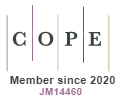The dimension of educational robotics as educational space
DOI:
https://doi.org/10.5585/dialogia.n34.16715Keywords:
Active methodologies, Educational robotics, Pedagogical practice.Abstract
This article discusses the use of robotics in educational environments, considering the spaces for these practices, with their own characteristics and dynamics, as new educational spaces. The main objective of this article is to lay a theoretical foundation on the practice of educational robotics, as well as to propose its use through educational workshops. Thus, the research question was proposed: "Would it be possible to interpret the practices that are adopted for the development of educational robotics from the perspective of active methodologies?". In this investigation, an educational robotics workshop was held, developing planning, application and evaluation phases. This research used action research with a qualitative approach, using as methodological instruments the interview and the semi-structured questionnaire. The data analysis indicates the positive evaluation on the part of the students regarding the experiences lived in robotics championships and the satisfaction with the methodology developed during the realization of the workshop.Downloads
References
ARAÚJO, R.; FRIGOTTO, G. Práticas pedagógicas e ensino integrado. 2015. Disponível em: <https://periodicos.ufrn.br/educacaoemquestao/article/view/7956>. Acesso em: 10.09.2018.
BARBOSA, P. et al. Metodologias ativas no processo da aprendizagem significativa. 2018. Disponível em: http://www.olharcientifico.kinghost.net/index.php/olhar/article/view/128. Acesso em: 10.06.2019
BARDIN, Laurence. Análise de Conteúdo. São Paulo: Edições 70, 2016.
CAMPOS, Flavio. Robótica educacional no Brasil: questões em aberto, desafios e perspectivas futuras. 2017. Disponível em: <https://periodicos.fclar.unesp.br/iberoamericana/article/viewFile/8778/6944>. Acesso em: 24.10.2018.
CASTRO, Luis. O Uso do Arduino e do Processing no Ensino de Física. 2016. Disponível em: <http://www.unirio.br/mnpef/dissertacoes/o-uso-do-arduino-e-do-processing-no-ensino-de-fisica/view>. Acesso em: 03.07.2019.
MORAIS, J.; SOUZA, P.; COSTA, T. A relação teoria e prática: investigando as compreensões de professores que atuam na educação profissional. 2017. Disponível em: <http://www2.ifrn.edu.br/ojs/index.php/RBEPT/article/view/5720/pdf>. Acesso em: 31.08.2018.
MORAN, J. Metodologias ativas para uma aprendizagem mais profunda. Disponível em: http://www2.eca.usp.br/moran/wp-content/uploads/2013/12/metodologias_moran1.pdf. Acesso em: 10.06.2019
PAIVA, M. et al. Metodologias ativas de ensino-aprendizagem: revisão integrativa. 2016. Disponível em: https://www.ea2.unicamp.br/mdocs-posts/metodologias-ativas-de-ensino-aprendizagem-revisao-integrativa/. Acesso em: 06.06.2019
SANTOS, T.; POZZEBON, E.; FRIGO, L. A utilização de robótica nas disciplinas da educação básica. 2013. Disponível em: <http://periodicos.ifsc.edu.br/index.php/rtc/article/view/1165/840>. Acesso em: 28.10.2018
SILVA, Alzira. RoboEduc: Uma Metodologia de Aprendizado com Robótica Educacional. 2009. Disponível em: <ftp://ftp.ufrn.br/pub/biblioteca/ext/bdtd/AlziraFS.pdf>. Acesso em: 25.06.2019.
SILVEIRA, Sérgio. Desenvolvimento de um Kit Experimental com Arduino para o Ensino de Física Moderna no Ensino Médio. 2016. Disponível em: <https://repositorio.ufsc.br/bitstream/handle/123456789/167485/dissertacao.pdf?sequence=5>. Acesso em: 06.09.2019.
SOUSA, Robson. Teorias e práticas em tecnologias educacionais. 2016. Disponível em: <http://books.scielo.org/id/fp86k/pdf/sousa-9788578793265.pdf>. Acesso em: 27.10.2018.
THIESEN, Juares. A interdisciplinaridade como um movimento articulador no processo ensino-aprendizagem. 2008. Disponível em: <http://www.scielo.br/pdf/rbedu/v13n39/10.pdf>. Acesso em: 27.10.2018.
TRIPP, D. Pesquisa-ação: uma introdução metodológica. 2005. Disponível em: <http://www.scielo.br/pdf/ep/v31n3/a09v31n3.pdf>. Acesso em: 07.10.2018.
ZABALA, A. A Prática Educativa: como ensinar. Porto Alegre: Artmed, 1998.
Downloads
Published
How to Cite
Issue
Section
License
Copyright (c) 2020 Fernanda Cordeiro Santos, Geraldo Alves Sobral Júnior

This work is licensed under a Creative Commons Attribution-NonCommercial-ShareAlike 4.0 International License.
10.3390/laboratories1010002
10.5585/40.2022.21600
- Abstract 1151
- PDF (Português (Brasil)) 1041







